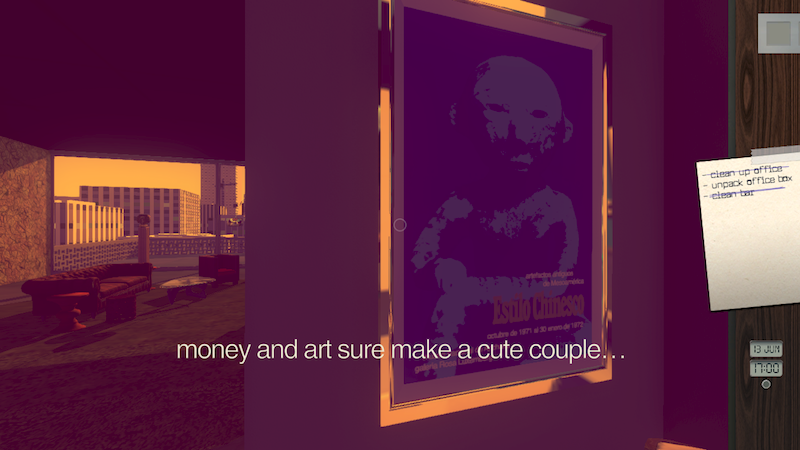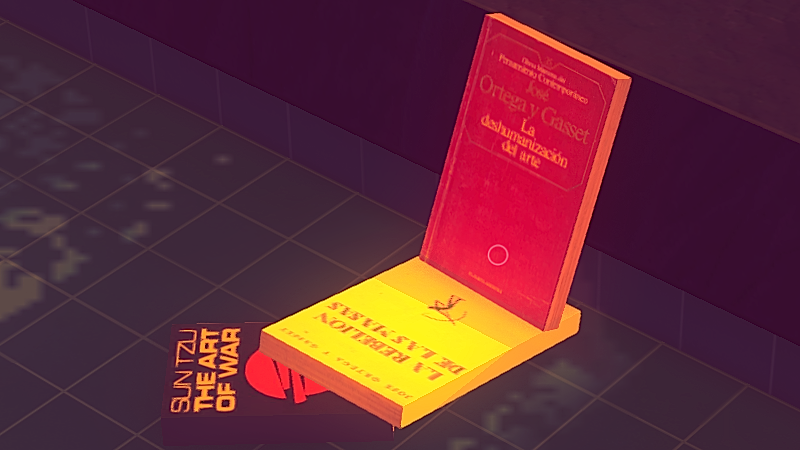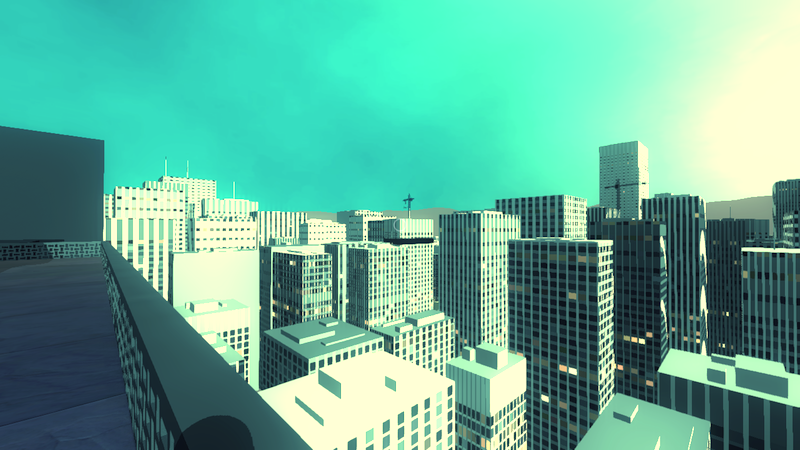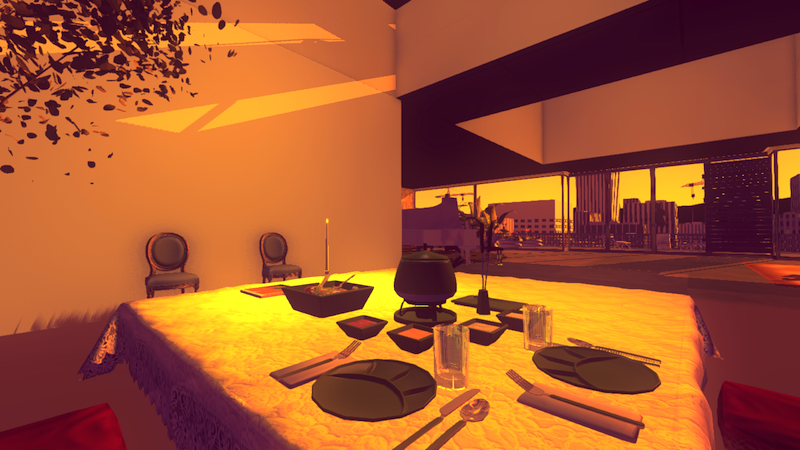Trending
Opinion: How will Project 2025 impact game developers?
The Heritage Foundation's manifesto for the possible next administration could do great harm to many, including large portions of the game development community.

Featured Blog | This community-written post highlights the best of what the game industry has to offer. Read more like it on the Game Developer Blogs or learn how to Submit Your Own Blog Post
About the theme of art in our game Sunset. About modernism and postmodernism. About the importance of art in our lives.


Gabriel Ortega is a lover of the arts. Before the military coup closed the museums and operas, he was a well loved curator, critic and, thanks to the money from his marriage with Maria Luisa Veleta, a benefactor of culture.
In Sunset we see him possessing a large amount of books and many sculptures and paintings, appreciating music, and in the end, frantically attempting to rescue artworks from the destruction by military oppression and civil war.
If Angela Burnes, the immigrant housekeeper to his luxurious penthouse, represents the kind of person Auriea and I aspire to be, then Gabriel Ortega represents who we are now.
I love art, I live through art. Art makes me feel connected to life, opens my eyes for the beauty of creation, moves me to the core of my being where I become one with the cosmos. The pleasure that art brings is the very cornerstone of my existence. Without art I would not exist, or not feel that I did, or that it mattered if I did.
Much like Ortega hates the modernist apartment that he moves into at the start of Sunset, do I find it difficult to extend this love for art to the modern age. So much of 20th century art has centered on the rejection of beauty. The simple beauty of a landscape or a nude has been ridiculed by cynics who consider two World Wars sufficient excuse to destroy everything.
In an attempt to liberate the arts from narrative, mythology, religion, and so on, modernists have abandoned if not destroyed the humanity of the arts. Gabriel Ortega, by the way, was named after the Spanish philosopher José Ortega y Gasset who in 1925 published the deeply insightful essay “The Dehumanization of Art” which remains highly poignant to this very day.

Modernism has left us with concrete city blocks and grids of roads to squeeze our very organic bodies and lives into. The skyscraper skyline is the epitome of modernism. And while its criticism was valid and well meant, postmodernism hasn't produced much to alleviate the distress, stuck in self-referential irony that celebrates the banality of human existence instead of its aspirations, and its charm. So much so that the proud purity of modernism started to appeal to us, while we were building a game set in 1972.
Modernism started a certain international style that dominated life around the world until well into the nineteen seventies. It was the aesthetic companion of universalist humanism spread by Western culture. Since postmodernism we have of course been reluctant to consider anything as universal. All cultures are always local and temporary and any form of cultural influence is quickly deemed neo-colonial. We want cultures to remain pure, often not realizing how patronizing and cynical such an attitude is coming from a still dominant culture accompanied by a suffocating economy and defended by the largest military aparatus ever gathered on this planet.

From the perspective of today, however, a time riddled with extremism, with terrorism, with preemptive strikes, with forced regime changes and corporate exploitation, I can't help but feel a certain sympathy for a world that voluntarily embraces some of the benefits of Western idealism. The whole world becoming a village just feels more pleasant than a continuous clash of cultures.
Like Ortega I feel forced to reconsider my position. Maybe there is an aspect of modernism that can benefit mankind.
Another book that has greatly influenced my thinking about art is “Venus in Exile” by Wendy Steiner (2001). She approaches modernism from a feminist perspective and demonstrates how the abandonment of beauty could in fact be seen as a sexist move.
“Picasso, like other modern painters, transformed the allure of the female subject into the formal beauty of line and volume, and in the process transferred our response from admiration of her beauty to admiration of his virtuosity.” — Wendy Steiner
Attributing certain properties to genders, or even the very concept of femininity, is offensive to many feminists. I don't share that position. I think men and women can be different and that this is a cause for celebration. I do not believe that women should need to adopt masculine properties in order to gain respect. On the contrary: I believe that most everything in this world would benefit from becoming a little more feminine.
Both Angela and Gabriel attack the oppressive sterility of the modernist penthouse in their own way. Gabriel introduces what would be considered kitsch. Paintings, sculptures, antiques and even pieces of furniture that bring story and color and organic form into the austere apartment. It's an act of rebellion. Angela attacks the architecture through domesticity: through simple acts of housekeeping and decoration, she forces the perpendicular walls to form a home for Gabriel, and to some extent for herself. Not the grand sublime gestures of great art but the simple loveliness of pretty things. Putting a flower in a vase, hanging a curtain, mending a sweater suddenly become the most subversive acts of all.

Ortega's aesthetic sensibility is plagued by civil unrest and war. Mine by pop culture and consumerism. Our museums and libraries are stuffed with glorious art but we'd rather go see some dinosaur space movie or stare at "meme" pictures on the internet all day long. We'd even rather do so ironically than consider a tiny effort to explore some art. Belgian psychiatrist Paul Verhaeghe has basically diagnosed us all with depression. This society is making us sick and we don't even know it.
In the game industry, to call a videogame "a work of art" is generally intended as an insult. Or at the very least a legitimate excuse for the player to ignore the piece. To aspire to beauty and greatness is considered pretentious. We are constantly being dragged down for trying to enjoy life.
I understand that many people "just don't get it." It is not unimaginable that art would require a level of intellect and sensitivity that not everyone possesses. But usually it's a lack of education that lies at the basis of our indifference towards the very thing that could cure us. Now that secure employment is a thing of the past, maybe the education of our children can shift towards teaching them how to become happy and satisfied. A big part of that could come from acquaintance with the arts.
— Michaël Samyn.
Read more about:
Featured BlogsYou May Also Like